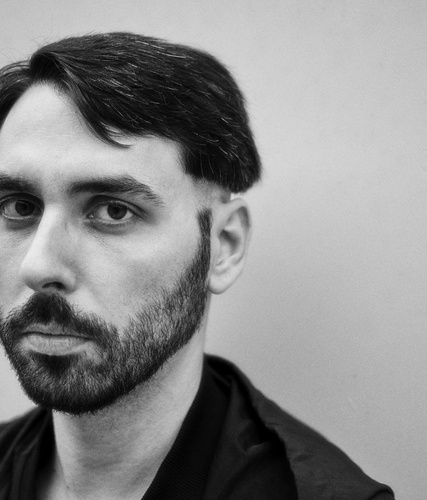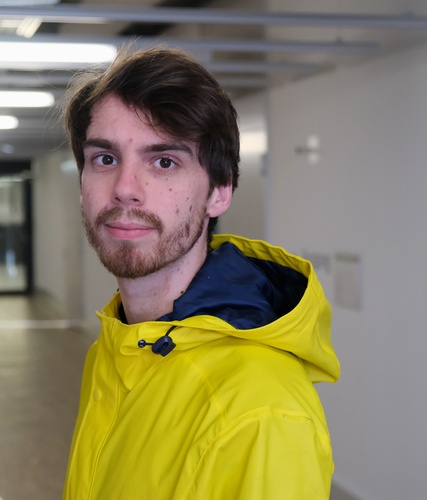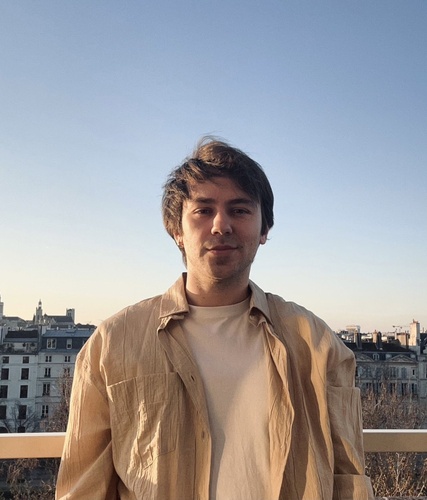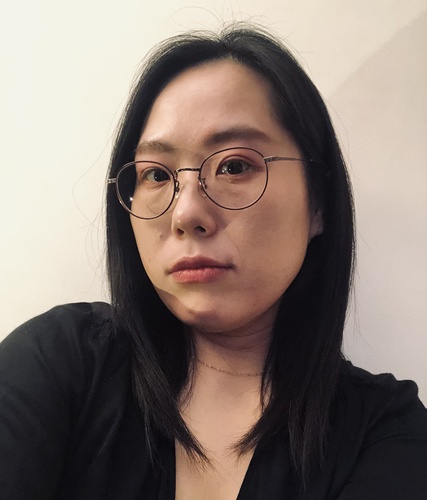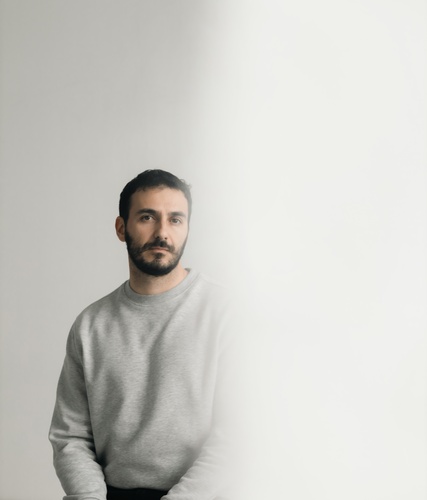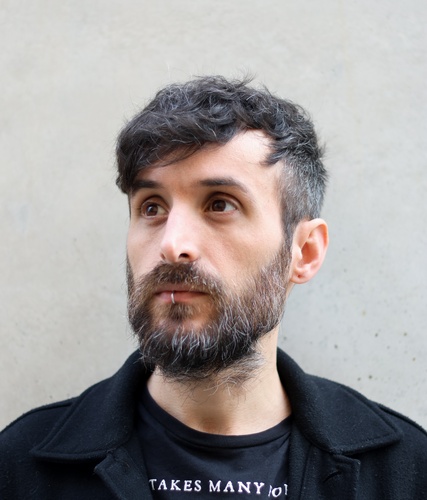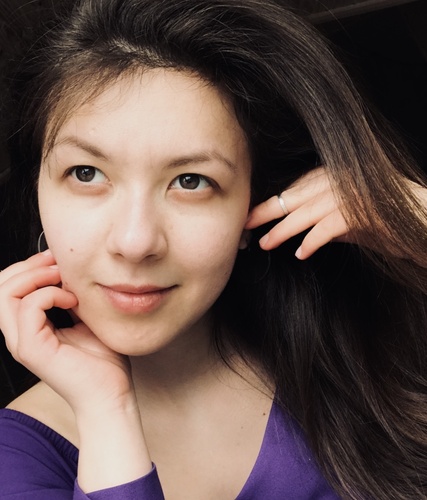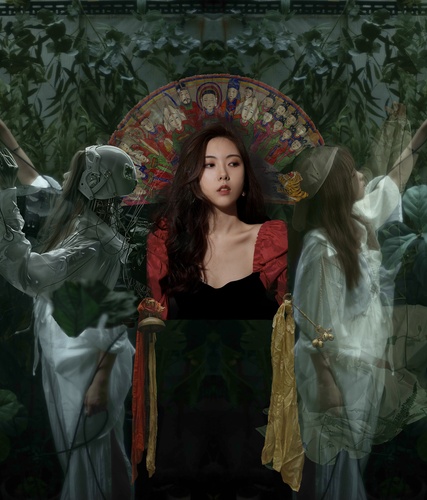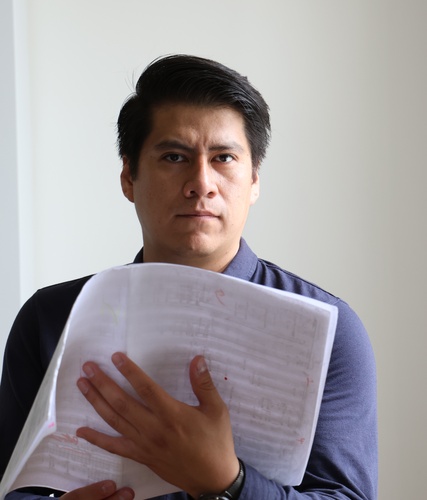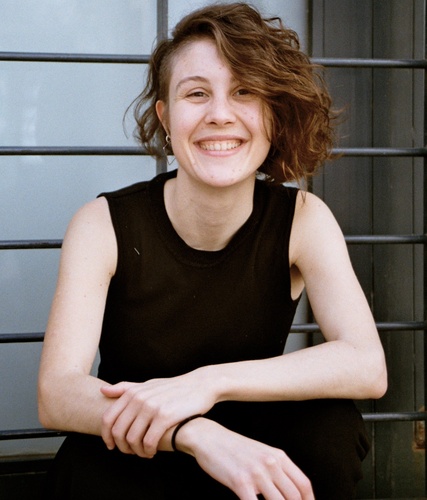Cursus de composition et d'informatique musicale
Appel à candidatures ouvert jusqu'au 3 décembre pour la promotion 2026.27 : plus d'infos sur calls.ircam.fr
Le Cursus est un programme biennal en informatique musicale conçu pour de jeunes compositeurs et compositrices. Il vise à leur transmettre une autonomie technique approfondie ainsi que la maîtrise de plusieurs programmes informatiques, au service de la création artistique.
Pendant une année complète, d’octobre à septembre de l’année suivante, les stagiaires sont formés sur les logiciels développés par l’Ircam et appliqués à la composition musicale (Max, OpenMusic, Modalys, ASAP, Partiels, Spat...).
Intégrés au cœur de l’institut, ils évoluent en dialogue avec les chercheur.euse.s, doctorant.e.s, développeur.euse.s, ingénieur.e.s du son, réalisateur.rice.s en informatique musicale, compositeur.rice.s et artistes invité.e.s, qui travaillent au quotidien dans les laboratoires et les studios de l’Ircam.
Après trois années en tant que compositeur associé au Cursus, Pierre Jodlowski continue, jusqu'en septembre 2025, d’ouvrir la voie à une approche interdisciplinaire de la composition, en animant des workshops collectifs autour de l’image, du mouvement, du texte et de l’improvisation. Les stagiaires sont ainsi encouragés à expérimenter et à développer des axes personnels afin d’étendre leur recherche à d’autres champs artistiques. Centré avant tout sur des problématiques musicales, le Cursus se veut également ouvert à toute forme de pratique, intégrant le medium technologique dans une grande diversité d’approches, de formes et d’esthétiques.
Pour valider les compétences acquises tout au long de l’année, les stagiaires présentent des mini-projets à l’issue de chaque unité d’enseignement. Ces présentations constituent également des étapes préparatoires à la réalisation de leur projet final, présenté en ouverture de la saison musicale de l’Ircam, au mois de septembre.
La prochaine session du cursus se tiendra en 2026-2027. Elle marque le début d’une ère nouvelle avec l’arrivée d’Eva Reiter en tant que compositrice associée au cursus et l’introduction de nouvelles orientations pédagogiques. « Composer, c’est comme créer un instrument de musique », affirme Eva Reiter – une idée qui prend tout son sens lorsqu’il s’agit de composer avec l’électronique, en la considérant comme un instrument à part entière.
Au-delà d’une simple classe de composition, le cursus est un espace-temps dédié à l’expérimentation, à la prise de risque, et à l’exploration de soi-même au contact des technologies. C’est un lieu où l’électronique s’intègre pleinement à la pensée musicale et au geste compositionnel.
Quelle vision porter sur le monde et sur la société ? Que veut-on dire, défendre, questionner – et comment l’adresser au public ? Encadrées par Eva Reiter, les nouvelles orientations pédagogiques du Cursus s’ancrent dans les enjeux contemporains : l’usage de la technologie au service de la pensée musicale, l’intégration de l’intelligence artificielle dans le processus de composition, la musicologie et l’analyse des œuvres avec électronique – tout en accordant une place essentielle à la relation avec l’interprète.
![]()
En partenariat avec le Conservatoire national supérieur de musique et de danse de Paris (Cnsmdp), l’Académie supérieure de musique de Strasbourg-HEAR et le Conservatoire national supérieur de musique et de danse de Lyon (CNSMDL). Les élèves inscrits en master de composition à la HEAR ou au CNSMDL ont la possibilité d’effectuer, après sélection par un jury dédié, leur première ou deuxième année de formation en master au sein du Cursus de l’Ircam. Celles inscrites au CNSMDP peuvent quant à elles bénéficier d’une prise en charge après la 2e année de leur master.
La Maison de l’Ile-de-France, située au sein de la Cité internationale universitaire de Paris (CiuP), propose des logements à disposition des compositrices et compositeurs du Cursus 2026-2027 (frais à la charge des compositrices et compositeurs).
L’Ircam remercie chaleureusement la Direction de l’Innovation, de la Recherche et de l’Enseignement supérieur de la Région Île-de-France, la Maison de l’Ile-de-France et la Cité internationale universitaire de Paris pour leur soutien apporté au Cursus.
![]()
Le Cursus en bref
- 35 ans d’expérience et un programme en constante évolution
- Une dimension internationale affirmée, avec plus de 50 nationalités accueillies depuis le début du programme
- Un lien étroit avec la recherche et l’innovation de l’Ircam
- Des formateurs experts, disponibles et à l’écoute
- Un accompagnement personnalisé avec une équipe pédagogique dédiée
- Depuis 2016, plus de 40 commandes passées à des compositeurs et compositrices dans les 4 ans suivant la fin de leur formation.
![]()
Equipe pédagogique permanente du Cursus
Simone Conforti, Grégoire Lorieux, Sébastien Naves, Claudia Jane Scroccaro réalisateur.rice.s en informatique musicale chargés d’enseignement
Pierre Jodlowski compositeur associé au Cursus
Eva Reiter compositrice associée à partir d'octobre 2025
Philippe Langlois directeur du département pédagogie
Murielle Ducas chargée de coordination pédagogique
Contact 01 44 78 48 17 | cursus (@) ircam.fr
 Concert du Cursus, septembre 2024 © Ircam-Centre Pompidou, photo : Quentin Chevrier
Concert du Cursus, septembre 2024 © Ircam-Centre Pompidou, photo : Quentin Chevrier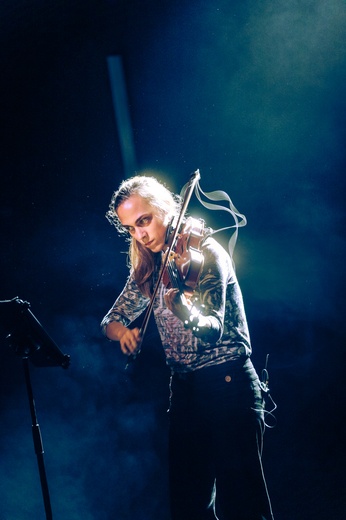 Concert du Cursus, septembre 2024 © Ircam-Centre Pompidou, photo : Quentin Chevrier
Concert du Cursus, septembre 2024 © Ircam-Centre Pompidou, photo : Quentin Chevrier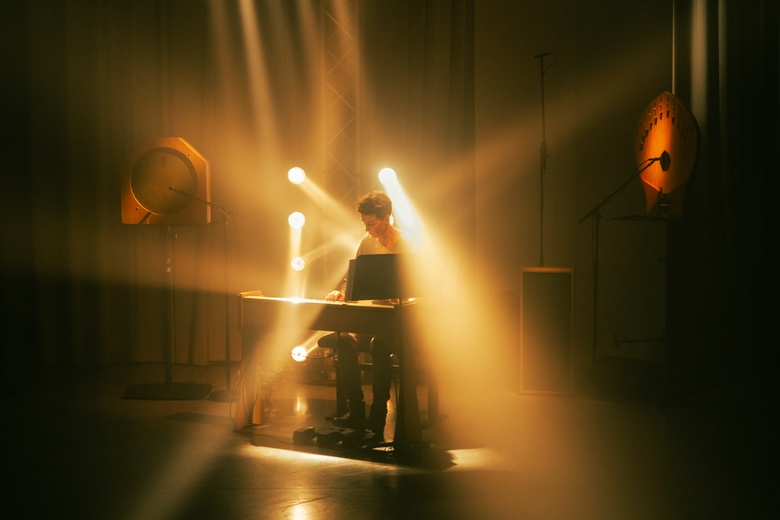 Concert du Cursus, septembre 2024 © Ircam-Centre Pompidou, photo : Quentin Chevrier
Concert du Cursus, septembre 2024 © Ircam-Centre Pompidou, photo : Quentin Chevrier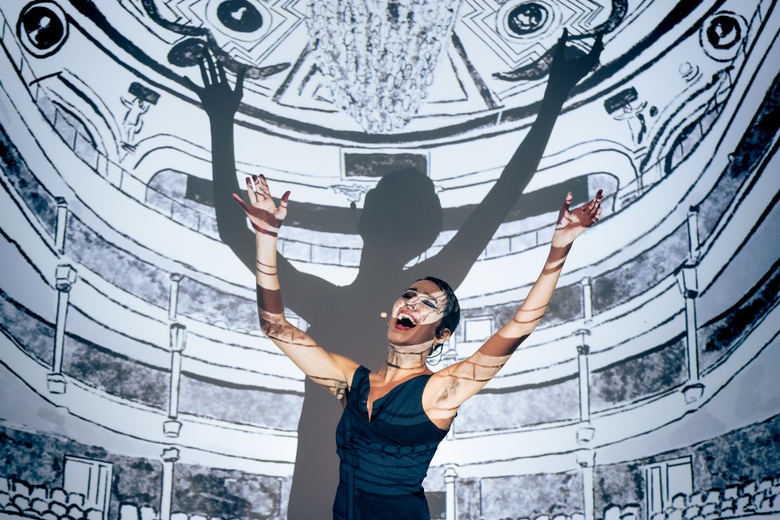 Concert du Cursus, septembre 2024 © Ircam-Centre Pompidou, photo : Quentin Chevrier
Concert du Cursus, septembre 2024 © Ircam-Centre Pompidou, photo : Quentin Chevrier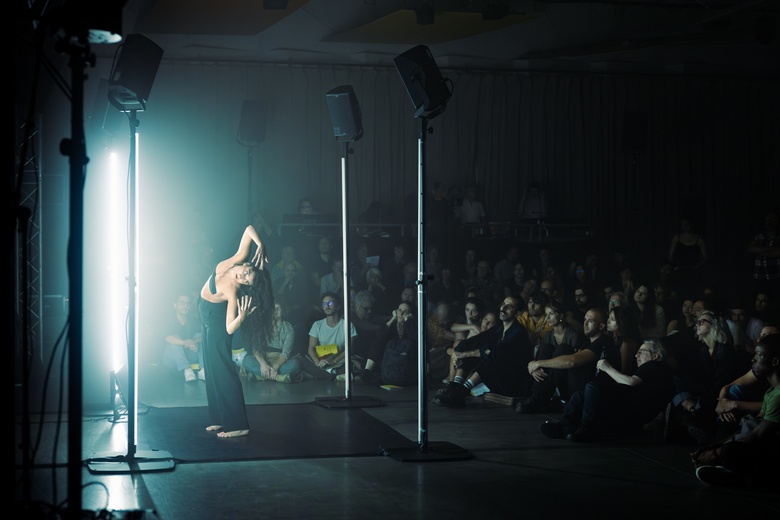 Concert du Cursus, septembre 2024 © Ircam-Centre Pompidou, photo : Quentin Chevrier
Concert du Cursus, septembre 2024 © Ircam-Centre Pompidou, photo : Quentin Chevrier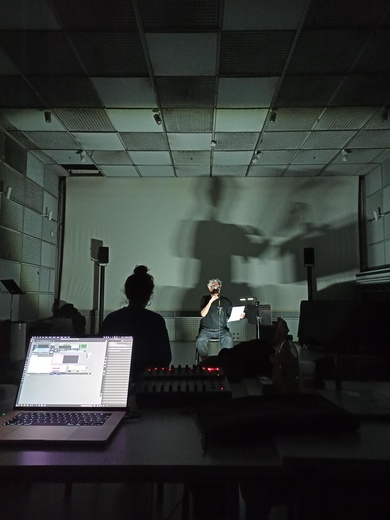 Workshop texte avec Lionel Parlier et Irène Gayraud à l'Ircam, décembre 2024 © Ircam - Centre Pompidou, photo : Lauren Lefebvre
Workshop texte avec Lionel Parlier et Irène Gayraud à l'Ircam, décembre 2024 © Ircam - Centre Pompidou, photo : Lauren Lefebvre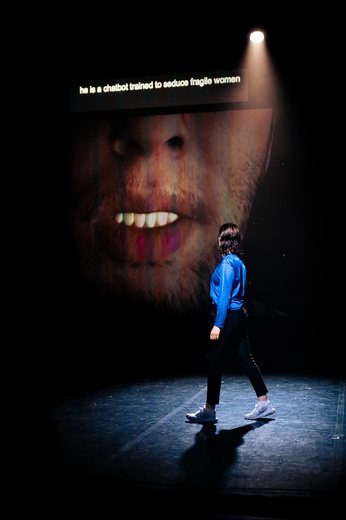 Concert du Cursus, septembre 2024 © Ircam-Centre Pompidou, photo : Quentin Chevrier
Concert du Cursus, septembre 2024 © Ircam-Centre Pompidou, photo : Quentin Chevrier Workshop danse, avec Nina Santès, CND de Pantin, mars 2025 © Ircam - Centre Pompidou, photo : Lauren Lefebvre
Workshop danse, avec Nina Santès, CND de Pantin, mars 2025 © Ircam - Centre Pompidou, photo : Lauren Lefebvre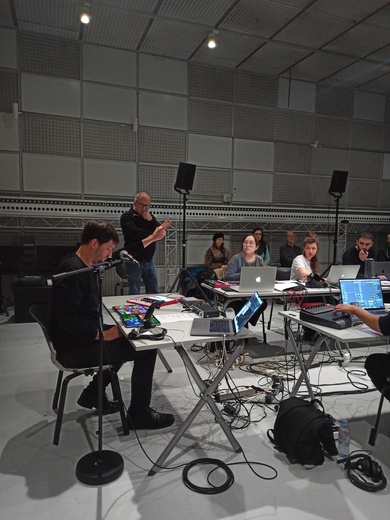 Workshop improvisation avec Sam Pluta à l'Ircam, janvier 2025 © Ircam - Centre Pompidou, photo : Lauren Lefebvre
Workshop improvisation avec Sam Pluta à l'Ircam, janvier 2025 © Ircam - Centre Pompidou, photo : Lauren Lefebvre Itziar Vilora et Nina Santès lors du workshop danse, CND de Pantin, mars 2025 © Ircam - Centre Pompidou, photo : Lauren Lefebvre
Itziar Vilora et Nina Santès lors du workshop danse, CND de Pantin, mars 2025 © Ircam - Centre Pompidou, photo : Lauren Lefebvre
La promotion 2024.25
Compositeur.trice.s sélectionné.e.s pour le Cursus 2024.25
Konstantinos Baras
Konstantinos Baras (Grèce, né en 1993), compositeur grec passionné par les sons complexes et saturés, a entamé son parcours musical à la suite d'un diagnostic de syndrome HanDL à l'âge de 18 ans. Dan…
Severin Dornier
Severin Dornier (Allemagne, né en 1993). Travaillant dans les domaines du théâtre musical, de l’installation sonore, des arts numériques et de toutes les zones grises indéfinies entre les deux, la pratique artistiq…
Emre Eröz
Emre Eröz (Turquie, né en 1995) est un compositeur dont les œuvres explorent le potentiel des sons complexes, en s’inspirant de divers genres musicaux. Il aime créer des narrations sonores qui explorent les espaces subtils …
Yoko Konishi
Yoko Konishi (Japon, née en 1986) s’est formée en tant que compositrice de musique mixte, artiste multimédia, interprète et chanteuse, avec une curiosité particulière pour l’exploration du bruit et de…
Antonio La Spina
Antonio La Spina (Italie, né en 1991) est compositeur et pianiste. Il a étudié en Italie, aux Pays-Bas, en Allemagne et au Portugal et il a été choisi comme compositeur de l’Internationale Ensemble Modern Akademie…
Sergi Puig
Sergi Puig (Espagne, né en 1989) a étudié la composition au Conservatori Superior del Liceu à Barcelone, avec Ramon Humet et Benet Casablancas, où il a obtenu son prix avec distinction. Il a complété sa formation &agrav…
Yana Shliabanska
Yana Shliabanska (Ukraine, née en 1994) est compositrice et artiste sonore. Elle est l’autrice d’œuvres de musique classique contemporaine, de musique pour le théâtre, la danse et des performances, de musique é…
Jiwon Seo
Jiwon Seo (Corée du Sud, né.e en 1993) compositeur.rice de musique et artiste interdisciplinaire, reçoit le soutien d’institutions prestigieuses telles que la Fondation Ernst von Siemens pour la musique et la Fondation Nicati-D…
Luis Torres
Luis Torres (Mexique, né en 1993) est un compositeur de musique acoustique, acousmatique et électroacoustique. Il a obtenu son premier master en composition au Royal College of Music de Londres, sous la direction de Dai Fujikura et Ken…
Itziar Viloria
Itziar Viloria (Pays basque, née en 1997) est une compositrice, performeuse électronique, directrice technique et artiste visuelle. Elle vit entre Barcelone et Bilbao. Son intérêt pour les différentes disciplines artisti…
Candidater au Cursus
Candidatures
Être âgé(e) de moins de 37 ans.
La participation à la procédure de sélection est gratuite.
Conditions générales de vente
Calendrier
- 25 juin 2025 : ouverture de l’appel à candidature ;
- 3 décembre 2025 : clôture du dépôt de candidature
- Décembre 2025 – février 2026 : processus de sélection
- Communication des résultats de la sélection pour le Cursus 2025-2026 : fin-février 2026
Après la sélection :
- Début mars 2026 : Les candidat.e.s sélectionné.e.s pour le Cursus doivent confirmer leur inscription par e-mail ;
- Mars 2026 : Le programme détaillé du Cursus 2026-2027 et les conditions générales du programme seront envoyés aux participant.e.s
- Mars-avril 2026 : Après acceptation par la.le candidat.e des conditions et de l’inscription, un contrat devra être signé entre l’Ircam et la.le participant.e, et un acompte de 600 euros devra être versé avant le 29 avril 2026
Dossier de candidature
Le dossier doit comprendre :
- Une copie de la carte d'identité ou du passeport
- Un curriculum vitæ détaillé
- La liste des expériences professionnelles et prix reçus
- Une lettre de motivation
- Une ou plusieurs lettres de recommandation
- Trois œuvres récentes dont au moins une avec électronique (partition, enregistrement audio, vidéo...)
- Le lien d’un patch de l’une de vos compositions à télécharger (Max ou tout autre logiciel temps-réel) depuis la plateforme de votre choix ; Merci de donner un lien permanent et sans mot de passe.
Conditions de participation pour les candidat.e.s retenu.e.s
10 places sont disponibles.
Frais d’inscription : 2 000€ (incluant l’abonnement Premium Individuel du Forum Ircam pendant 2 ans)
Les candidat.e.s sélectionné.e.s pour le Cursus doivent confirmer leur participation par écrit et s’engager à ne prendre aucun engagement professionnel pendant la durée du programme. Les cours ont lieu à l’Ircam du lundi au vendredi de 10h à 13h et de 14h30 à 17h30*. Il y a deux semaines de congés au mois de décembre pour les vacances de Noël.
* Informations pouvant être soumises à modification.
Bourses
L’Ircam ne prend en charge ni bourse, ni voyage mais vous accompagne dans vos démarches de recherche de financements.
Contact : cursus (@) ircam.fr.
Le Cursus n’est pas éligible au titre du Compte personnel de formation (CPF).
Accessibilité aux personnes en situation de handicap
Politique d’accessibilité et conditions d’accès.
Il est vivement recommandé aux personnes en situation de handicap de contacter l’Ircam en écrivant à cursus (@) ircam.fr, afin qu’un suivi adapté puisse être proposé.
Réclamations
Pour toute réclamation, vous pouvez contacter l’Ircam via le formulaire de réclamation en ligne.
Le post-cursus
Le post-cursus a lieu en biennale, les années où il n’y a pas de cursus complet. Il sera mis en place pour la première fois en 2025-2026. Ce dispositif d’insertion professionnelle permet à un.e ancien.ne stagiaire du cursus de composition de réaliser une résidence artistique au sein d’une équipe de recherche de l’Ircam, afin de prolonger les recherches entamées durant le cursus. Le compositeur ou la compositrice sélectionné.e bénéficie d’une commande artistique en coproduction avec une structure, un ensemble, ou un festival et pourra être programmé.e dans la saison de l’Ircam ou dans le cadre du festival Manifeste.
Compositrice associée Eva Reiter



